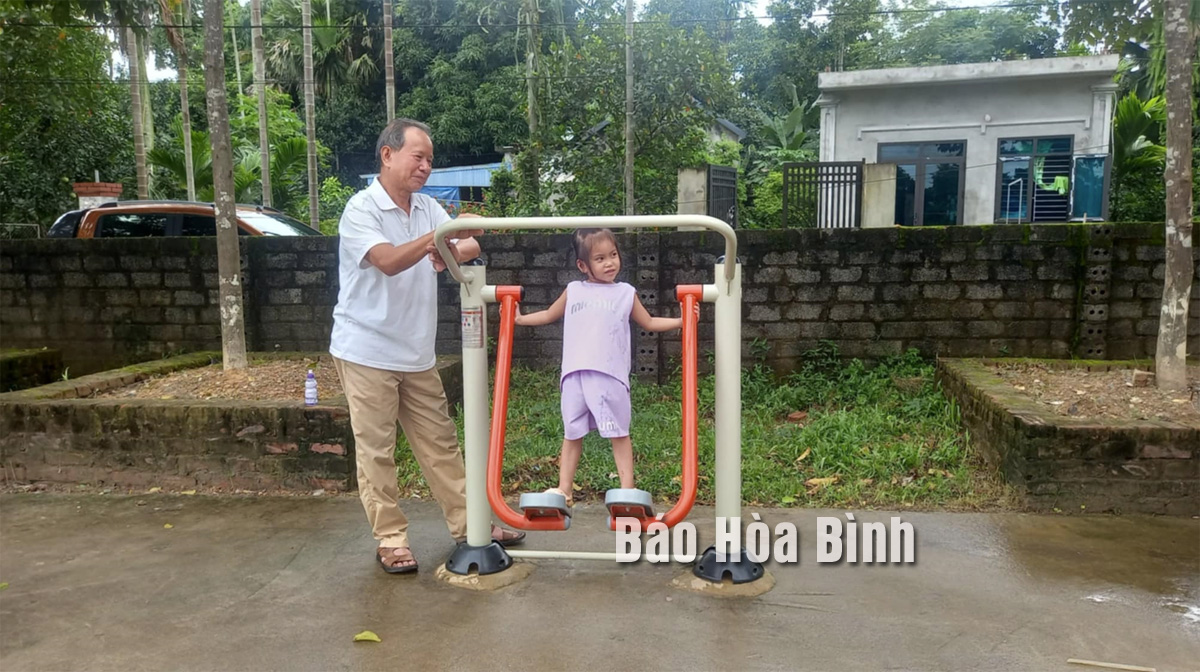



Bui Van Hoa from Binh Tan village, Nam Thuong commune, Kim Boi district, plays and exercises with his granddaughter at the village cultural centre.
Bui Ngoc Tinh, Secretary of the village’s Party cell, explained that public awareness about the benefits of building an advanced new-style rural area has grown. They have realised that it means better material and spiritual life for everyone, with the primary beneficiaries being the residents themselves. As a result, families have voluntarily donated land and funds to improve the village infrastructure. Roads have been upgraded, and flower planting projects implemented to make the area more attractive.
Bui Van Toan, Vice Chairman of the Nam Thuong People's Committee, revealed that the commune was selected for advanced new-style rural building in Kim Boi. "This task is challenging, especially after the COVID-19 pandemic, which necessitated adjustments to some related policies. The process is further complicated by cuts in public investment, making budget allocation difficult. Although most officials, party members, and residents are committed to the mission, there is still part of the population that relies heavily on government support and has yet to fully embrace their role in the process,” Toan explained. Challenges also include difficulties in securing investment from financial institutions and insufficient local capital.
In response, the commune's Party Committee has tasked various departments and organisations with mobilising and educating residents. Between 2021 and 2025, Nam Thuong plans to invest over 117 billion VND (4.6 million USD) in advanced new-style rural development, with over 18 billion VND or 15.3% of the total contributed by the residents.
Successful agricultural models have been implemented, including the cultivation of pumpkin, other vegetables, and citrus fruits, as well as livestock farming such as breeding cattle and free-range chickens. The development of small industries and rural trades has also been encouraged. The commune is promoting various rural services like transportation, land preparation, milling, and retail sale, which contribute to job creation and economic restructuring.
To date, the average per capita income has reached 60.58 million VND, and the multidimensional poverty rate is expected to drop to 7.89% this year. The focus remains on enhancing value-added production and sustainable development linked to new-style rural building.
Toan added that the commune is facing difficulties with environmental criteria, such as waste management. However, those related to school infrastructure and health insurance criteria have been basically addressed. Nam Thuong is now awaiting relevant authorities to assess its compliance with the advanced standard.